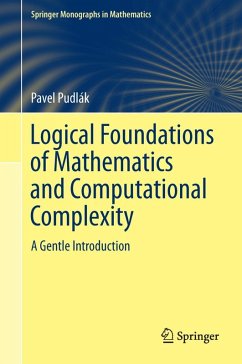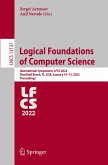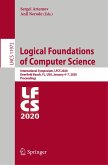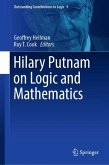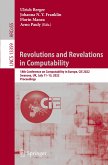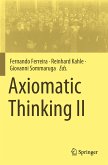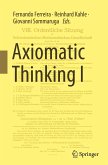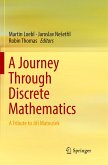The two main themes of this book, logic and complexity, are both essential for understanding the main problems about the foundations of mathematics. Logical Foundations of Mathematics and Computational Complexity covers a broad spectrum of results in logic and set theory that are relevant to the foundations, as well as the results in computational complexity and the interdisciplinary area of proof complexity. The author presents his ideas on how these areas are connected, what are the most fundamental problems and how they should be approached. In particular, he argues that complexity is as important for foundations as are the more traditional concepts of computability and provability.
Emphasis is on explaining the essence of concepts and the ideas of proofs, rather than presenting precise formal statements and full proofs. Each section starts with concepts and results easily explained, and gradually proceeds to more difficult ones. The notes after each sectionpresent some formal definitions, theorems and proofs.
Logical Foundations of Mathematics and Computational Complexity is aimed at graduate students of all fields of mathematics who are interested in logic, complexity and foundations. It will also be of interest for both physicists and philosophers who are curious to learn the basics of logic and complexity theory.
Emphasis is on explaining the essence of concepts and the ideas of proofs, rather than presenting precise formal statements and full proofs. Each section starts with concepts and results easily explained, and gradually proceeds to more difficult ones. The notes after each sectionpresent some formal definitions, theorems and proofs.
Logical Foundations of Mathematics and Computational Complexity is aimed at graduate students of all fields of mathematics who are interested in logic, complexity and foundations. It will also be of interest for both physicists and philosophers who are curious to learn the basics of logic and complexity theory.
From the reviews:
"This book, exactly as indicated by its title, deals with the main philosophical, historical, logical and mathematical aspects ... in a quite approachable and attractive way. ... the prospective readers of this book are mathematicians with an interest in the foundations, philosophers with a good background in mathematics, and also philosophically minded scientists. Due to the author's nice style, the book will be a very good choice for the first text in studying this subject." -- Branislav Bori?i?, zbMATH, Vol. 1270, 2013
"This book, exactly as indicated by its title, deals with the main philosophical, historical, logical and mathematical aspects ... in a quite approachable and attractive way. ... the prospective readers of this book are mathematicians with an interest in the foundations, philosophers with a good background in mathematics, and also philosophically minded scientists. Due to the author's nice style, the book will be a very good choice for the first text in studying this subject." -- Branislav Bori?i?, zbMATH, Vol. 1270, 2013
"This monograph by the outstanding Czech logician Pavel Pudlák provides a broad but also deep survey of work in logic and computer science relevant to foundational issues, interpreted in a wide sense. ... This is a fine overview of logic and complexity theory that can be confidently recommended to anybody who would like to orient themselves in an increasingly intricate and difficult field." (Alasdair Urquhart, Philosophia Mathematica, Vol. 23 (3), October, 2015)
"For the non-expert it offers indeed a 'gentle introduction' to logic that is well selected and excellently explained. And for the logician it certainly offers some of the best introductions to those topics outside their area of direct expertise. ... it contains plenty of informal explanations, intuition and motivation. ... It is truly a gift to the logic and wider communities ... . This book is very enjoyable to read and I wish it all success." (Olaf Beyersdorff, Mathematical Reviews, August, 2014)
"It spans the historical, logical, and at times philosophical underpinnings of the theory of computational complexity. Students of mathematics seeking a transition to higher mathematics will find it helpful, as will mathematicians with expertise in other areas. ... an excellent choice for a first text in studying complexity, or as a clarifying adjunct to any assigned text in this area. ... a compact guide for graduate students with a need for or interest in computational complexity and its foundations." (Tom Schulte, MAA Reviews, July, 2014)
"This book, exactly as indicated by its title, deals with the main philosophical, historical, logical and mathematical aspects ... in a quite approachable and attractive way. ... the prospective readers of this book are mathematicians with an interest in the foundations, philosophers with a good background in mathematics, and also philosophically minded scientists. Due to the author's nice style, the book will be a very good choice for the first text in studying this subject." (Branislav Boricic, zbMATH, Vol. 1270, 2013)
"For the non-expert it offers indeed a 'gentle introduction' to logic that is well selected and excellently explained. And for the logician it certainly offers some of the best introductions to those topics outside their area of direct expertise. ... it contains plenty of informal explanations, intuition and motivation. ... It is truly a gift to the logic and wider communities ... . This book is very enjoyable to read and I wish it all success." (Olaf Beyersdorff, Mathematical Reviews, August, 2014)
"It spans the historical, logical, and at times philosophical underpinnings of the theory of computational complexity. Students of mathematics seeking a transition to higher mathematics will find it helpful, as will mathematicians with expertise in other areas. ... an excellent choice for a first text in studying complexity, or as a clarifying adjunct to any assigned text in this area. ... a compact guide for graduate students with a need for or interest in computational complexity and its foundations." (Tom Schulte, MAA Reviews, July, 2014)
"This book, exactly as indicated by its title, deals with the main philosophical, historical, logical and mathematical aspects ... in a quite approachable and attractive way. ... the prospective readers of this book are mathematicians with an interest in the foundations, philosophers with a good background in mathematics, and also philosophically minded scientists. Due to the author's nice style, the book will be a very good choice for the first text in studying this subject." (Branislav Boricic, zbMATH, Vol. 1270, 2013)

